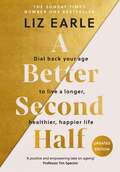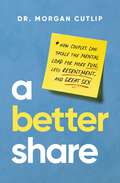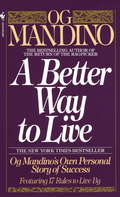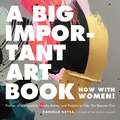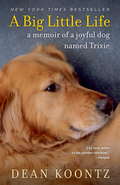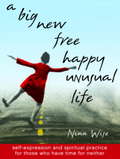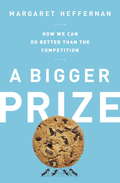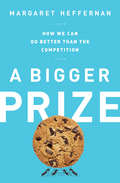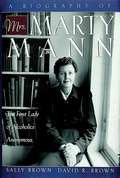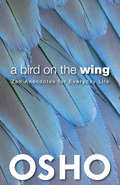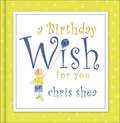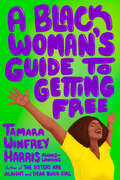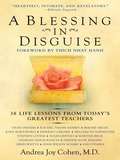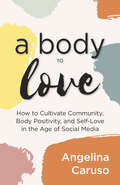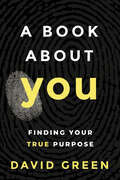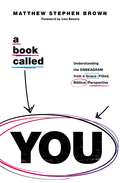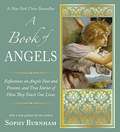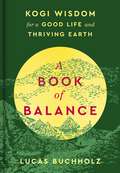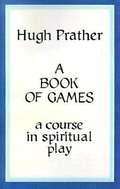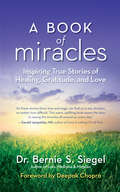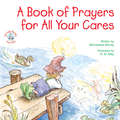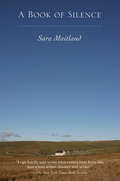- Table View
- List View
A Better Second Half: Dial Back Your Age to Live a Longer, Healthier, Happier Life. The Number 1 Sunday Times bestseller 2024.
by Liz Earle'I am loving this! You can tell the years of research from Liz, the wellbeing guru, that have gone into this book.' - Trinny Woodall'This book is a godsend! Full of warm, wise advice that really works.' - Lorraine Kelly 'Liz's passion for wellbeing and her natural ability to make learnings into relatable, practical tips makes this book an enjoyable and informative read. A positive and empowering take on ageing.' - Tim Spector 'Such a treasure trove of life friendly tips' - Melissa Hemsley 'Liz is a real inspiration - we can all learn so much from her personal journey to optimise our health as we age' - Dr Louise NewsonLive Better: Feel Better: Age Better.In the revised and updated edition of the bestselling book A Better Second Half, Liz Earle shows us how to future-proof our health in midlife and beyond using evidence-based techniques, ideas and wisdom accumulated over her years of experience in the wellbeing arena.We all know that midlife women are often hit the hardest of all health-wise, sandwiched between bringing up our families, juggling work and caring for ailing parents, and it is all too easy to lose sight of ourselves. But whatever stage or age you are there is hope and many ways to take back control of your health - physical, mental and emotional - and make yourself a priority rather than bottom of the to-do list. Liz Earle sorts the fads from the fiction in wellbeing and breaks through the noise that surrounds all the online advice that can overwhelm us. She has taken this mission to heart with her empowering new book A BETTER SECOND HALF. Part a retrospective of her life and part a brilliant, distillation of self-help, Liz puts forward what we need to do to live well and age well through midlife and beyond. Never shy of making her body a testing lab for new discoveries, Liz shares important information on the gut-brain axis, nutri-genomics, the efficacy of high intensity weight training, the pros and cons of low carb diets, the new science of peptides, testosterone supplementation and much, much more.Liz Earle is one of the most-trusted voices in wellbeing today and here she shares her hard-won wisdom, practical advice and know-how that can turn the tide on those feelings of dejection and can have us heading into our second halves full of vigour and hope to live longer and better.
A Better Share: How Couples Can Tackle the Mental Load for More Fun, Less Resentment, and Great Sex
by Morgan CutlipTransform your marriage and enjoy your spouse again when you share the mental load and end the cycle of stress and resentment.Relationship expert Dr. Morgan Cutlip helps couples view the mental load--the endless and mostly invisible work of managing a household and family--as a shared enemy to conquer versus a problem they have with each other, offering practical solutions for navigating the most common pain points couples struggle with.Usually a few years after &“I do&”—once the reality of family life hits—many couples find themselves at each other's throats because they don't know how to navigate the mental and emotional work of managing a household together. They worry that they'll always be fighting about who should do the dishes or pick up the balloons for the party, but don't know how to begin talking about their frustrations without pointing fingers.In A Better Share, Dr. Morgan Cutlip offers you practical advice that goes beyond getting your spouse to pick up the slack and focuses on the unique perspectives and experiences of each partner, enabling both of you to feel seen and heard. She helps you leave behind resentment and anxiety and begin to:Understand why the mental load primarily falls on women and how it impacts sexual desireShare perspectives, expectations, ownership, and accountabilityUse actionable plans for divvying up tasks and teaching the next generation how to share the mental load Through research and stories based on real couples, A Better Share guides you out of the endless stress and resentment cycle and into a relationship where sharing is caring, having fun together is a priority, and great sex isn't a thing of the past.
A Better Way to Live: Og Mandino's Own Personal Story of Success Featuring 17 Rules to Live By
by Og MandinoOg Mandino is the leading inspirational author in the world. But once, he was a thirty-five year old derelict who nearly spend his last few dollars on a suicide gun. Now, for the first time ever, he describes the joyously redemptive process that turned a down-and- out alcoholic into a millionaire and a happy man within ten years. Og Mandino is the only person who could tell this heartwarming tale of personal triumph--because it is his own true story. And it can profoundly influence your life.
A Biblical Perspective of What to Do When You Are Abused By Your Husband
by Debi Pryde Robert NeedhamFrom the back cover There is Hope for Abuse. Abuse is scary and unsettling whether you are the pastor or counselor offering hope and instruction, The woman facing the abuse in her home, The Friend wanting to help Or The Abuser struggling to change. This book offers a Biblical perspective of hope and lasting peace, Concepts oftentimes foreign to abuse cases.
A Big Important Art Book (Now with Women): Profiles of Unstoppable Female Artists--and Projects to Help You Become One
by Danielle KrysaCelebrate 45 women artists, and gain inspiration for your own practice, with this beautiful exploration of contemporary creators from the founder of The Jealous Curator. Walk into any museum, or open any art book, and you'll probably be left wondering: where are all the women artists? A Big Important Art Book (Now with Women) offers an exciting alternative to this male-dominated art world, showcasing the work of dozens of contemporary women artists alongside creative prompts that will bring out the artist in anyone!This beautiful book energizes and empowers women, both artists and amateurs alike, by providing them with projects and galvanizing stories to ignite their creative fires. Each chapter leads with an assignment that taps into the inner artist, pushing the reader to make exciting new work and blaze her own artistic trail. Interviews, images, and stories from contemporary women artists at the top of their game provide added inspiration, and historical spotlights on art "herstory" tie in the work of pioneering women from the past. With a stunning, gift-forward package and just the right amount of pop culture-infused feminism, this book is sure to capture the imaginations of aspiring women artists.
A Big Little Life: A Memoir of a Joyful Dog Named Trixie
by Dean KoontzIn a profound, funny, and beautifully rendered portrait of a beloved companion, bestselling novelist Dean Koontz remembers the golden retriever who changed his life. A retired service dog, Trixie was three when Dean and his wife, Gerda, welcomed her into their home. She was superbly trained, but her greatest gifts couldn't be taught: her keen intelligence, her innate joy, and an uncanny knack for living in the moment. Whether chasing a tennis ball or protecting those she loved, Trixie gave all she had to everything she did, inspiring Dean and Gerda to trust their instincts and recapture a sense of wonder that will remain with them always. Trixie lived fewer than twelve years; in this wide world, she was a little thing. But in every way that mattered, she lived a big life.
A Big New Free Happy Unusual Life
by Nina WiseSharing simple ten-minute practices that can be performed anywhere, anytime, this unique guide restores the joys of creativity to a way of life that has become increasingly automated. Copyright © Libri GmbH. All rights reserved.
A Bigger Prize
by Margaret HeffernanA visionary business writer shows how to acheive success in all areas of life--by not competing for it. Tiger mothers stand by with tutors to make sure schoolchildren keep pace. At college, deepening debt is the only way to stay ahead. In the world of work, bond traders and derivatives sellers push ever-riskier products onto unsuspecting customers, themselves eager to pay for a lifestyle that demonstrates how well they're doing. How did we get sucked into a worldview that has proved so destructive, anti-social and wasteful? Whatever made us believe that competition would reward the smartest people, the greatest products, the best companies? Why do we trust that competitive games, markets and tests will magically identify the just winner? Surrounded by over-complex technology and cheap and tawdry merchandise, how could we imagine that competition is anything other than a forcef or devastation and waste? In her brilliant new book, Margaret Heffernan reveals how blind pursuit of success in business and life limits our opportunities and keeps us from positive choices. She argues that instead of allowing ourselves to be slaves to competition, we should tap into natural reserves of altruism, collaboration and cooperation. Those talents are innate and genetically hardwired, ripe for development, primed for innovation. Drawing on the latest scientific and economic research and her own numerous interviews with everyone from captains of industry to neuroscientists to Olympic athletes, Margaret Heffernan debunks competition as the ultimate answer to our biggest questions. But in doing so she reveals its positive aspects that until now have gone largely unacknowledged. This superbly readable book shows us how to do competition differently--and better--in business and in life.
A Bigger Prize: How We Can Do Better than the Competition
by Margaret HeffernanGet into the best schools. Land your next big promotion. Dress for success. Run faster. Play tougher. Work harder. Keep score. And whatever you do?make sure you win. Competition runs through every aspect of our lives today. From the cubicle to the race track, in business and love, religion and science, what matters now is to be the biggest, fastest, meanest, toughest, richest. The upshot of all these contests? As Margaret Heffernan shows in this eye-opening book, competition regularly backfires, producing an explosion of cheating, corruption, inequality, and risk. The demolition derby of modern life has damaged our ability to work together. But it doesnOCOt have to be this way. CEOs, scientists, engineers, investors, and inventors around the world are pioneering better ways to create great products, build enduring businesses, and grow relationships. Their secret? Generosity. Trust. Time. Theater. From the cranberry bogs of Massachusetts to the classrooms of Singapore and Finland, from tiny start-ups to global engineering firms and beloved American organizations?like Ocean Spray, Eileen Fisher, Gore, and Boston Scientific?Heffernan discovers ways of living and working that foster creativity, spark innovation, reinforce our social fabric, and feel so much better than winning. "
A Biography of Mrs Marty Mann: The First Lady of Alcoholics Anonymous
by Sally Brown David R. BrownMarty Mann was the first woman to achieve long-term sobriety in Alcoholics Anonymous, and she inspired thousands of others, especially women, to help themselves.The little-known life of Marty Mann rivals a Masterpiece Theatre drama. She was born into a life of wealth and privilege, sank to the lowest depths of poverty and despair, then rose to inspire thousands of others, especially women, to help themselves. The first woman to achieve long-term sobriety in Alcoholics Anonymous, Marty Mann advocated the understanding that alcoholism is an issue of public health, not morality. In their fascinating book, Sally and David Brown shed light on this influential figure in recovery history. Born in Chicago in 1905, Marty was favored with beauty, brains, charisma, phenomenal energy, and a powerful will. She could also out drink anyone in her group of social elites. When her father became penniless, she was forced into work, landed a lucrative public relations position, and a decade later was destitute because of her drinking. She was committed to a psychiatric center in 1938-a time when the term alcoholism was virtually unknown, the only known treatment was "drying out," and two men were compiling the book Alcoholics Anonymous. Marty read it on the recommendation of psychiatrist Dr. Harry Tiebout: it was her first step toward sobriety and a long, illustrious career as founder of the National Council on Alcoholism, or NCA.In the early 1950s, journalist Edward R. Murrow selected Marty as one of the 10 greatest living Americans. Marty died of a stroke in 1980, shortly after addressing the AA international convention in New Orleans.This is a story of one woman's indefatigable effort and indomitable spirit, compellingly told by Sally and David Brown.
A Bird on the Wing
by Osho Osho International FoundationEleven classic anecdotes provide starting points to demonstrate the relevance of Zen to every aspect of 21st-century life. From the professor so full of his own ideas that he has no room for any new learning, to the monastery cook who solves a koan by kicking over a jug of water, readers will see themselves, their friends, and even modern-day celebrities and politicians reflected in the characters who populate these fascinating Zen stories. In each chapter, following the discussion of the story at hand, Osho responds to questions from his audience about matters of love, life, relationships, and "the search." Throughout the book he emphasizes the importance both of honoring our "roots" in the simple pleasures of everyday life, and nourishing the "wings" that allow us to experience our connection with that which is universal, transcendent, and eternal.
A Birthday Wish for You
by Chris SheaEvery second, several thousand people somewhere in the world are celebrating a birthday. What better way to celebrate that special day than with this charming little gift book. Chris Shea fans and newcomers alike will be pleased to add this treasure to their gift list on that wonderful holiday called The Birthday!
A Black Woman's Guide to Getting Free
by Tamara Winfrey HarrisEmpowering, feminist guidance for Black women on living unapologetically and authentically-from the bestselling author of The Sisters Are Alright.Unshackle your authentic self from the expectations and stereotypes of American culture through the 6 pillars of living free as a Black woman.Tamara Winfrey Harris harnesses her knowledge as a two-time author and storyteller of the Black femme experience and nationally known expert on the intersections of race and gender to deliver a sharp feminist analysis that is illustrated by real-life stories and examples plucked from popular culture and intimate Black woman-to-Black woman truth-telling.This book is separated into two parts. First, the meaning of liberation is explored and Black women will be guided in creating sustaining practice to mature their well-being along the freedom journey. In part two, readers are introduced to the 6 pillars of living free as a Black woman: Spot the distortionsKnow your truthCelebrate the real youUnderstand the cost of liberationPractice freedomSEE free Black women everywhereWith the bold, astute writing that you have come to expect from Winfrey-Harris, A Black Woman's Guide to Getting Free urges Black women everywhere to choose themselves, and choose freedom, in a world that would have you chained.
A Blessing in Disguise
by Andrea Joy CohenToday's greatest luminaries generously share personal stories about their most challenging experience-and provide the healing wisdom that helped them emerge fortified with inner-peace, strengthened faith, and a deeper understanding of life. Features pieces by: Dean Ornish Rachel Naomi Remen Bernie Siegel Joan Borysenko Harriet Lerner Belleruth Naparstek Stephen Levine Martha Beck Dharma Singh Khalsa Daphne Rose Kingma David Whyte Anne Wilson Schaef And Others
A Body to Love: How to Cultivate Community, Body Positivity, and Self-Love in the Age of Social Media
by Angelina CarusoHow to Have A Healthy Relationship with Food and Body Image in the Digital Age“Anyone who has ever had a ‘complicated’ relationship with food or their body will benefit from this book.” ?Brenna O’Malley, registered dietitian and founder of The Wellful#1 New Release in Human-Computer Interaction, Eating Disorder Self-Help, and Computer ScienceA new conversation about the media and radical self-love, A Body to Love provides lessons on positively navigating body image in a social media saturated world.Forming healthy relationships with the internet. To Angelina Caruso, recovery meant finding her tribe?a community that offered support, encouragement, and zero judgement. But she never imagined finding them online. Now a health and wellness blogger, she narrates the progression of a body image disorder and her unusual path to recovery.Self-help healing through community. Grouped into lessons and warnings, this fresh take on social networks follows the author’s personal battle with a near-fatal eating disorder, the online relationships that helped her heal, and the eventual community she cultivated. Part social media guide and part body image and eating disorder workbook, you’ll learn to detect body image issues, heal as a mindful consumer, and inspire others as a content producer.Inside this interactive book, adult and teen readers alike will find:Handy chartsJournal promptsBreathing exercisesBonus recipes for mindful eatingAnd much more!If you’re looking for a body positivity journal, body image gifts, or mindful eating books?like The Self-Love Workbook for Women, The Body Is Not an Apology, More Than a Body, or Influencer?then you’ll want to own A Body to Love.
A Book About YOU: Finding Your True Purpose
by David GreenA Book About YOU offers a powerful approach for anyone seeking to discover their true self. Within A Book About YOU, David Green describes how different personality types interact with each other and the world around them. His methods help readers to understand their strengths and weaknesses, as well as how to become more understanding of others. With resources to guide readers as they make difficult life decisions, A Book About YOU explains which career path matches an individual’s talents and what major life choice will bring the most fulfillment. This manual for a happier life continues the inner journey of understanding the soul and how to experientially connect with it.
A Book Called YOU: Understanding the Enneagram from a Grace-Filled, Biblical Perspective
by Matthew Stephen BrownA biblically grounded Enneagram book that looks at the Enneagram numbers of people in the Bible so readers can discover more about themselves and gain specific wisdom about how and why they are uniquely made.Who am I? Everyone asks that question, no matter their age or status in life. If we truly are supposed to be real with others, shouldn&’t that start with learning how to be real with ourselves? We think so. But we have to be willing to look inside and ask, "Okay, God, who am I? What is it that I don&’t see about myself that you see?" A Book Called YOU will help us learn about who we are as individuals and how a biblical view of self-discovery can improve every part of our lives.Based on his widely successful teaching series "A Series Called You" and his personal experience using the Enneagram personality assessment tool in his marriage and other personal relationships, pastor Matt Brown offers a groundbreaking, entertaining, and heartfelt guide that highlights biblical truths alongside the Enneagram to help us better understand ourselves and how we relate to the people around us.
A Book of Angels: Reflections on Angels Past and Present, and True Stories of How They Touch Our L ives
by Sophy BurnhamThis intriguing book tells the extraordinary stories of present-day encounters with angels, traces the appearance of angels in various cultures, and explores how writers--such as Dante, Milton, and Shakespeare--have responded to angels throughout history. Illustrated. Copyright © Libri GmbH. All rights reserved.
A Book of Balance: Kogi Wisdom for a Good Life and Thriving Earth
by Lucas BuchholzWe all need help centering ourselves to serve ourselves and our world. In this small, beautiful book, the Kogi—a remote and ancient tribe in the mountains of Colombia--offer their learnings. They pose nine thought-provoking questions to help us live harmoniously with the earth and in turn find happiness and purpose in every moment.“Just as we are both sitting here and talking, this is how we can live well. All of this you will write in the book.”—Mama Jose Gabriel, a spiritual guide of the Kogi tribe, to author Lucas BuchholzFor centuries, the Kogi have lived in seclusion in Colombia’s remote Sierra Nevadas, known as “the heart of the world.” But in recent years, concerned by the environmental degradation they have experienced in their villages and forests, a few emissaries from the tribe emerged to bring an urgent and loving message to the West—advice on how to live in harmony with the earth.Buchholz was invited to their home to receive and transcribe this message. A Book of Balance takes us on a journey into a startlingly beautiful landscape and into a sacred space: the traditional fireside circle held regularly by the tribe. In this circle, members consider key questions essential to their community.In this slim volume of spiritual introspection, they ask us to share in their practice, posing nine questions that focus our minds and hearts on who we are, who we can become.Throughout we hear the words of the Kogi elders, wisdom that offers revelations, inspiration, and direction for our everyday lives.A beautiful book to own, to share with friends, and discuss in community.
A Book of Games
by Hugh PratherThis is a book of mental exercises to lead us into a consistently joyful life.
A Book of Love for My Daughter
by Jackson BrownThis beautiful gift book is one that any parent would be thrilled to give to a daughter. Containing three sections, A BOOK OF LOVE FOR MY DAUGHTER celebrates the love between a daughter and a parent.Section one focuses on a parent's memories and the important part they play in shaping the life of a daughter. Section two contains instructions from parents to daughters on how to live a happy and rewarding life. And in section three, parents share dreams for the future for their daughter.
A Book of Love for My Son
by Jackson BrownThis beautiful gift book is one that any parent would be thrilled to give to a son. Containing three sections, BOOK OF LOVE FOR MY SON celebrates the love that between a son and a parent. Section one focuses on a parent's memories and the important part they play in shaping the life of a son. Section two contains instructions from parents to sons on how to live a happy and rewarding life. And in section three, parents share dreams for the future for their son.
A Book of Miracles
by Dr Bernie S. SiegelBernie, as he prefers to be called, first wrote about miracles when he was a practicing surgeon and pioneered Exceptional Cancer Patients, a groundbreaking synthesis of group, individual, dream, and art therapy that provided patients with a “carefrontation.” His safe and loving approach facilitated patients’ awareness of their own physical, spiritual, and psychological healing potential. Compiled during his more than thirty years of practice, speaking, and teaching, the stories here are riveting, warm, and belief expanding. Their subjects include a girl whose baby brother helped her overcome anorexia, a woman whose cancer helped her heal by teaching her to stand up for herself, and even a family that was saved from a burning house by bats. Without diminishing the reality of pain and hardship, the stories show real people turning crisis into blessing by responding to adversity in ways that empower and heal. They offer readers the same opportunity.
A Book of Prayers for All Your Cares
by R. W. Alley Michaelene MundyHere is a wonderful book of psychology and spirituality--all in one. It shows children that God is someone we can share our every feeling with, and one we can "go to" in our own simple words. The author and illustrator cover a wide range of themes--from praying about one's anger or sadness to praying about being afraid or bored.
A Book of Silence
by Sara MaitlandIn her late forties, after a noisy upbringing as one of six children and adulthood as a vocal feminist and mother, Sara Maitland found herself living alone in the country and, to her surprise, falling in love with silence. In this fascinating, intelligent, and beautifully written book, Maitland describes how she set out to explore this new love, spending periods of silence in the Sinai desert, the Scottish hills, and a remote cottage on the Isle of Skye. Maitland delves deep into the rich cultural history of silence, exploring its significance in fairy tale and myth, its importance to the Western and Eastern religious traditions, and its use in psychoanalysis and artistic expression. Her story culminates in her building a hermitage on an isolated moor in Galloway, and as she guides readers through experiences of silence in this new home, she evokes a sense of peace that includes the reader in its intimate tranquility.
